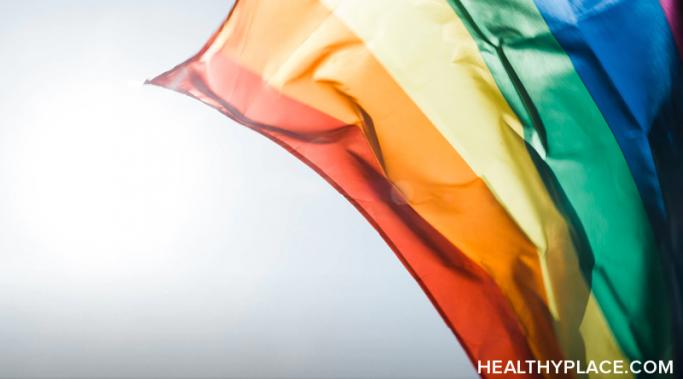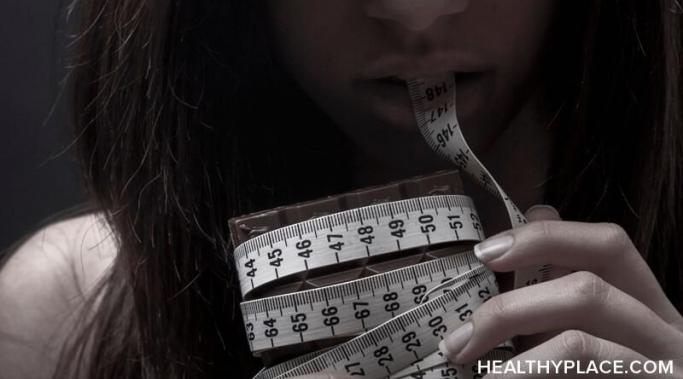When I walked into a residential treatment center at the age of 19, I saw myself as anorexic. Flash forward almost 10 years later, and I still identified as an anorexic in recovery. This descriptor used to roll off my tongue as if on instinct—it felt purely automatic to view the illness in terms of who I had become, rather than a diagnosis I could heal from. But as I'm about to turn 30 in just a couple of weeks, I have chosen to shed this label once and for all. I no longer call myself anorexic, and here is why I am making that intentional choice from now on.
Surviving ED
Before I chose to start the journey of freedom from my eating disorder in 2017, I took it as a source of pride that I rarely shed tears or expressed vulnerable emotions. The sheer fact I was able to count on one hand the number of times I cried in a 10-year period felt like a badge of honor. I feared the consequences of vulnerability, assuming any crack in my hard, stoic exterior would leave me open to rejection or betrayal. But underneath this tough shell of self-protection, there's always been a sensitive, compassionate soul with emotions that run deep and tears that ache to flow. Reclaiming those tears now feels cathartic for me, and I think it's important to name this as part of my healing process.
What does Pride Month mean to me in eating disorder recovery? That's a question I have explored intently during the past year. This is a vulnerable article for me to write because I have not spoken about it publicly until now, and it requires putting myself out there in a raw, exposed way. But since I am passionate about destigmatization—both in mental health and other sociocultural spheres—I think it could be meaningful to share this facet of my own personal identity, which has also become central to my eating disorder recovery.
In addition to my past eating disorder history, I am also someone who deals with anxiety in the present. This duality is not unique—in fact, an estimated 65 percent of those with eating disorders meet the diagnostic criteria for anxiety too. After numerous years of both residential treatment and other therapeutic modalities, I have learned how to manage the effects of anxiety, but in those times when stress wreaks particular havoc on my baseline functioning, I find that anxiety can influence my appetite.
One frequent trap I fall into when I become too complacent in eating disorder recovery is an urge to romanticize the past. I reflect on all those years I was consumed by anorexia with a kind of nostalgia that whispers, "Remember how in control you felt back then? Remember the rush of satisfaction that came each time you skipped a meal? Remember the sense of power that intensified with each mile you ran on the treadmill? Remember how proud you were to have a small, narrow body? Don't you want to feel like this again?"
One of the first lessons I had to confront in eating disorder (ED) recovery is that, more often than not, triggers are unavoidable. As much as I still want to insulate myself from these triggers that activate my harmful thought patterns, sheer avoidance is an unrealistic goal. The fact is, I will encounter situations that trigger me because I am a human who lives in the world. Many areas of life are chaotic, stressful, anxiety-inducing, and just plain uncontrollable—I cannot hide from this reality. So, a more effective use of time is to equip myself with tools to deal with ED triggers in environments outside my control.
Let's talk about quasi-eating disorder recovery. This is by no means a term I invented, but it is a state of being I am acutely familiar with. I have experienced it myself, and I have seen it manifest in other people who are on healing journeys as well.
Is there a right time to share your eating disorder story? And if so, when do you know the time is right? I have been thinking about these questions lately with regard to my own eating disorder story. A few months ago, I heard vulnerability researcher Brené Brown state in a podcast interview, "If there is a part of my story that I feel compelled to seek external validation for, then I am not ready to talk about it publicly."
When I reflect on some of the bravest people I know, those who are in eating disorder recovery often come to mind. That's because the pursuit of eating disorder recovery is courageous. It can be scary to take the steps into a new way of life apart from this illness, but the decision to move toward healing is also incredibly brave.
Over the past few months, my therapist and I have been talking about the power of choice in eating disorder recovery. I often think about this concept outside of therapy sessions too because it is so instrumental in my road to healing.









